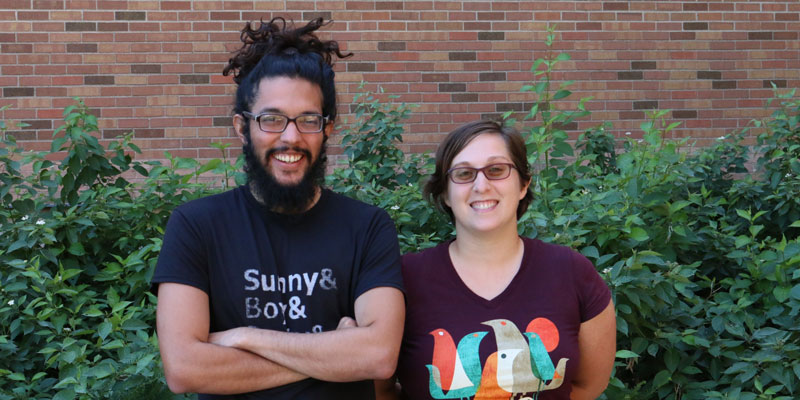Arjun Khakhar and Katie LaBarbera named as fellows in CBS postdoctoral program.

Solving some of the greatest challenges we face today involve using biology. But often, those answers involve pairing a biological understanding of the world with other fields of study to find solutions to some of life’s pressing questions. In an effort to further this collaborative approach to problem solving, the College of Biological Sciences recently selected its newest cohort for the Grand Challenges in Biology Postdoctoral Program, an effort to pair postdocs with faculty in departments across the University to find solutions through collaborative problem-solving.
This year’s cohort includes Arjun Khakhar, who recently received his Ph.D from the University of Washington, and Katie LaBarbera, a former postdoctoral researcher at the University of California, Berkeley.
Khakhar studies bioengineering, with a particular focus on designing molecular systems to design crops that are more nutritious, productive and resilient to changing climates. In the Grand Challenges program, Khakhar will work on a project titled “Reprogramming plant morphology and metabolism using the HACKER platform” with Daniel Voytas (Genetics, Cell Biology and Development) and Michael Smanski (Biochemistry, Molecular Biology and Biophysics). He aims to apply the systems he worked on in his graduate program to aid plant crop development, and create novel crop traits.
“These sorts of technologies will hopefully enable us to design better crops, which have designer traits that enable them to be more productive and environmentally robust,” says Khakar. “I hope that in doing so I will be able to contribute to the global effort to combat malnutrition and the rising food insecurity caused by climate change."
LaBarbera received her Ph.D. in integrative biology from UC Berkeley in 2016 and previously worked as a postdoctoral researcher on a population genomics project at the Museum of Vertebrate Zoology at the at UC Berkeley. As part of the Grand Challenges program, she plans to work with Mark Bee (Ecology, Evolution and Behavior), Peggy Nelson (Speech Language and Hearing) and Maria Gini (Computer Science and Engineering). Through her project, she aims to better understand how environmental variation impacts an animal’s use of multiple information sources to react to their environment by using robotic frogs to investigate sensory perceptions in real frogs.
“By characterizing a system of information use (female frogs) that has been shaped by millions of years of natural selection, we will uncover a blueprint for information use in other systems,” says LaBarbera. “We hope this can be used, for example, to improve hearing assistive devices.”
-Lance Janssen